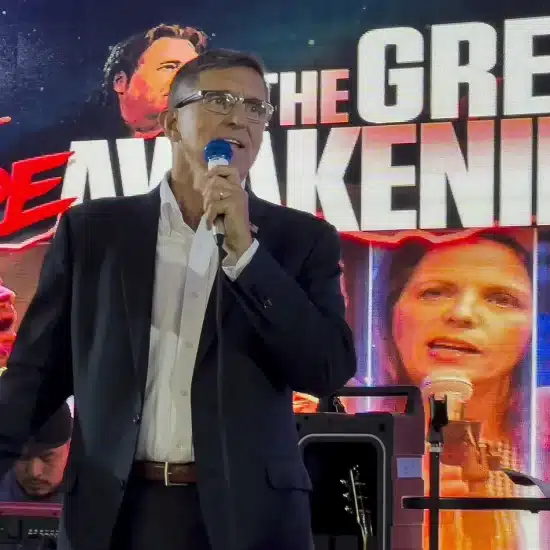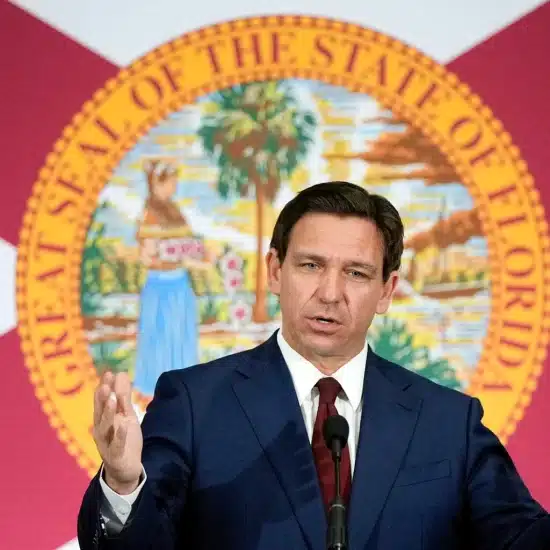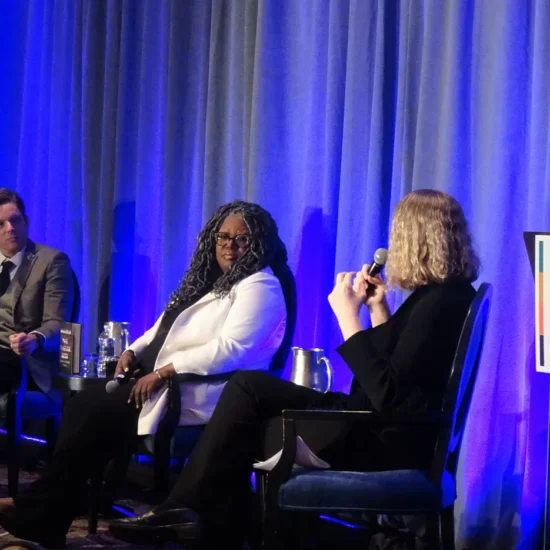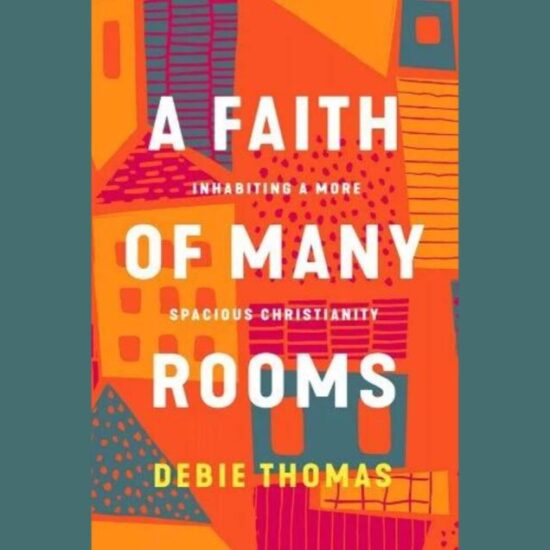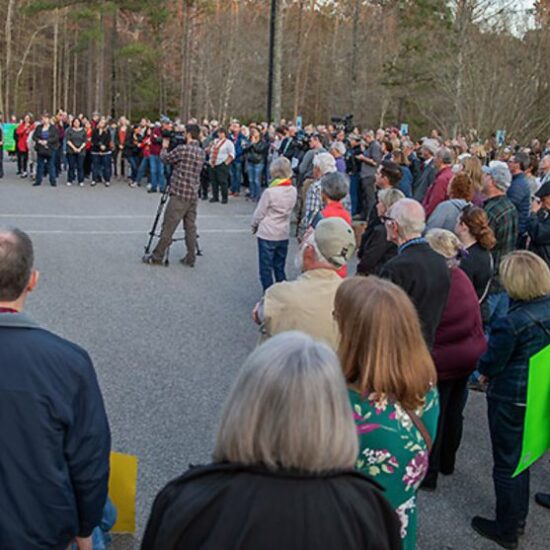
Something weird and geeky is happening with the words that fuel the current standoff between Gov. Greg Abbott and the United States Government down at Shelby Park in Eagle Pass, Texas. Theologians are getting into politics.

Duane Larson
Not only have theologians shown up and taken the rare step to claim authority as theologians within American politics, but they are doing so wrongly. Self-identified theologians are supporting harmful politics in Texas with theology irresponsibly ripped out of its original Lutheran context. As a career teaching theologian and pastor in the Lutheran church (as well as someone who lived in and maintains a love for Texas), I am obliged to go public too and call them out.
MAGA-sympathetic theologians are arguing for Texas’ right to overreach and usurp federal authority over immigration policy and enforcement. These religious consiglieres claim a 16th century historical precedent for their States’ Rightism. Their argument may look “geeky” to the religiously uninformed and those (understandably) who are tired of loud religious rhetoric in the public sphere. But if we ignore their argument, we allow them to pose a great danger to democracy. With bad faith, an incorrect interpretation of history, and just plain wrong theo-logic, they are arguing again to undo the Constitution.
They argue that a 1550 AD event justifies Texas’ situational superiority over the U.S. Constitution and the Federal Government. The Reformation-era historical occasion concerns the governing authorities of Magdeburg, Germany, who were resisting the oppression of Emperor Charles V. The conflict was: could and should an unjust “greater magistrate” (an authority over a larger region) be resisted, even violently, by “lesser magistrates” over smaller jurisdictions within the larger government entity? Of course, the answer is yes.
Westerners steeped in the Magna Carta, the Declaration of Independence, the very idea of civil rights, and more current freedom movements agree. But the Texas religious divergents are wrong to interpret Magdeburg as protecting local political rights. The truth is that the Magdeburg politicians were trying to protect the transcendent right of freedom of religion for their citizens, while Texan religionists are trying to claim a preferred politics.
Also, the Magdeburg Confession never was meant to be a doctrine for succeeding Christian generations. It was an application of what Christians of the Reformation tradition came to call The Two Kingdoms Doctrine. Getting this doctrine right — a doctrine encoded in the “constituting documents” of the Lutheran movement itself — is essential before anyone could rightly interpret the Magdeburg Confession, which itself was never received as a doctrine. MAGA-sympathetic theologians doubly fail because they don’t acknowledge the Two Kingdoms doctrine. Indeed, they cannot, for it would gut their argument for Christian Nationalism.
So please allow me to explain “Two Kingdoms” before we return to the misuse of “Magdeburg” today.
The Two Kingdoms doctrine stems from the Lutheran Reformation’s adaptation of language from St. Augustine. Luther and his followers, Jean Calvin too, following Romans 13, affirmed that God established both the spiritual kingdom and the temporal (civil) kingdom. The spiritual kingdom is ruled by the risen Christ and the temporal kingdom by governing authorities, the institutions of which God also “established.” While the kingdoms differ and God rules over them differently for different purposes, they are to work together side by side and not cross over into each other’s lanes. Before this doctrine became policy, social order was a mess. Princes and priests incessantly got into each other’s business; princes ruled over spiritual affairs and church prelates grabbed civil authority for themselves. Not rarely was this for fun and profit.
The Two Kingdoms doctrine was meant to bring order out of this chaos. In the spiritual kingdom, God graciously gives and nurtures faith, freeing believers from anxiety about their eternal future and freeing them for selfless service to their neighbor in the temporal world. Religious leaders were to attend zealously to preaching and teaching the gospel and assuring proper administration of sacraments. Done rightly, this is exhaustingly more than a full-time job. It requires of its pastors and priests uncommon depths of faith, wisdom, practical skills, knowledge of peoples’ and the world’s ways, and a disciplined prayer life to meet the vocation’s demands well.
God rules providentially over the temporal kingdom, sustaining the goodness of God’s creation by establishing authority structures to protect all citizens from harm, punish evil doers, and maximize freedom for personal moral integrity, health, and economic security. In other words, the civil order should promote the “natural law” of the Golden Rule throughout society, whether citizens were Christian or not. Civic leaders were responsible for protecting the rest of the social order, including maintaining the political freedom necessary for churches to do their own holy ministries. Civic authorities were not necessarily required to be Christian, though that in its time was a preference. Above all, the best worldly authorities were superbly skilled in administration (including finances), prudence, compassion, law, and political wisdom in negotiating the competing claims of citizens and “princes” (magistrates) of other territories. This too was no simple task.
Yes, the doctrine wasn’t always perfectly followed and later it was grievously misinterpreted. But it was better than the previous lack of organizing principles.
There were two important exceptions to this “stay in your lane” arrangement. These exceptions, like the Doctrine of Two Kingdoms itself, are scripturally based. The first exception was that citizens as a group were to advocate for change when the political authorities violated the Golden Rule; that is, when they abused human rights. Christians, because they (we) are citizens of both kingdoms and because we are inspired and directed to love the neighbor as ourselves, are called especially to love the neighbor by advocating against bad rule and even, when needed, by serving as government officials.
But — get this! — Christians may serve as civic leaders only if we have the right gifts for the job, not because we have any special Christian privilege. We serve in whatever way we are called to serve in the temporal kingdom because we are supposed to be awake to our call to advance the common good.
The second exception also is a great and grave Lutheran concern, which is to protect the freedom of the churches — today we would say all faith communities — to proclaim the gospel and administer the sacraments. That’s all that is necessary for Lutherans to be “church.” If any further requirement in faith and practice were to be added by other religious — or political! — authorities, that was and is utterly contrary to the church’s identity and mission and must be rejected. The church is to respond first with peaceable protest against any religious or civil authority that would so constrain or add to the nature of the church. Support of forceful resistance carried out by the civil authorities might be necessary as a last resort. This was why the faithful churches and institutions of the 1930s corporately opposed Naziism’s requirement of the churches to obey Hitler and acclaim themselves as German in their blood and in their baptisms.
Resistance was counseled differently for individuals. If individuals chose to resist great injustice by committing lesser sin in order to protect their neighbor, they were to do so with eyes wide open like the martyr Dietrich Bonhoeffer. But mostly we as individuals are counseled to obey even the unjust powers and principalities while entrusting our lives fully to God’s grace. If, finally, I could do no other than to act against injustice as my only way of protecting my neighbor, then I must accept what injustice may bounce back on me, as the jailed and murdered Bonhoeffer did in the strong solitude of his religious faith. Of course, I would hope and pray that my neighbor would try to care for me, too!
The Doctrine of Two Kingdoms is clear that the highest duty of each kingdom’s leaders always was to preserve and nourish the spiritual or political freedom necessary to love the neighbor. No tyranny from church or state over the other’s domain or over those within one’s domain was to compromise this. Of course, “politics” as the negotiating of personal and institutional interests makes life complicated, and the church is a temporal institution while also serving the spiritual kingdom. But the rules hold: (1) do not usurp or impinge on the institutions established to announce spiritual freedom, and (2) do not usurp or impinge on the political orderings meant to sustain all freedoms, including spiritual freedom; both orderings are to enable love of the neighbor.

A kayaker passes large buoys with round blades like those in circular saws being used as a floating border barrier on the Rio Grande River on Aug. 1, 2023, near Eagle Pass, Texas. (Eric Gay/Associated Press)
Now, what does this have to do with Magdeburg in 1550? When the essential being of the church is endangered by addition or suppression, the abused party must declare a “state of confession” (a statement of irreversible principle) on which basis the civil side will consider all options for redress from diplomacy to force. This is when the Magdeburg magistrates and their Confession were cued.
Emperor Charles V declared in 1548 that all Germany and other sympathetic territories were to cease publishing the German translation of the Bible and certain practices were to be re-introduced to Lutheran worship. Other “arrangements” had been negotiated for this so-called Augsburg Interim (temporary pause). But these additions were several steps too far. The Magdeburg officials argued that even though they were of lesser stature than the Holy Roman Emperor, their duty was to protect the essence of their own church and the religious rights of their constituents. Their tantamount duty as civic officials even as “lesser magistrates” to protect the faith required their protest, and so their Magdeburg Confession. This was, pure and simple, a political test of the greater demand of the Doctrine of Two Kingdoms.
Today, the MAGA-adjacent litigants in Texas claim the Magdeburg Confession as a seminal doctrine and precedent for states’ rights over federal “dictatorship.” They claim it as the “first and most important document” in Western law to inform our political ordering and to establish states’ rights, the rights of “lesser magistrates.” But now it should be clear. The Magdeburg Confession intended no such thing. To interpret it as the Texan theological pretenders do is historiographical malpractice in service to demagoguery. Magdeburg was a protest on behalf of religious freedom and the civil freedom necessary to love the neighbor. The Abbott consiglieri could be no more contrary to the spirit of Magdeburg.
Ample other biblical texts sing loud and clear about the priority of care for the immigrant and the stranger, in sum, the neighbor. The Doctrine of Two Kingdoms gave a social structure for that. The doctrine still maintains confessional authority in Lutheranism, though its medieval language makes it difficult for even some Lutheran leaders to speak it. But it is crystal clear that Magdeburg depends on this higher principle and in no way supports any argument for Texas’ resistance of the federal government and the U.S. Supreme Court.
Spokesfolks for MAGA may quibble over definitions of “neighbor” and offer arcane arguments based on very old case histories. But to use Magdeburg as a mask for the states’ rights justifications, like John C. Calhoun argued for secession and civil war, is worse than disingenuous. It is an attempt to use Magdeburg to destroy the very principle on which Magdeburg stands — that there are boundaries with very rare crossing exceptions between the divinely legitimated domains of the spiritual and the temporal.
The theological argument growing like a thorny tumbleweed out of Texas violates the boundaries without meeting the criteria for exceptions. This argument is but another act of White Christian Nationalists that would undo the Constitution and overturn the classic Protestant doctrine of Two Kingdoms along with it. Responsible theologians, religious leaders, and political leaders must awaken to the threat.
Duane Larson (MDiv, PhD) is a systematic theologian and pastor in the Evangelical Lutheran Church in America (ELCA). He taught at the Lutheran Theological Seminary at Gettysburg (now United Lutheran Seminary) and served as President of Wartburg Theological Seminary before concluding his full-time ministry career as Senior Pastor of Christ the King Lutheran Church in Houston (where he also taught at the University of Houston). Author/editor of over 50 articles and several books (most recently on Moral Injury), he currently is writing a book on the Doctrine of Two Kingdoms, due for publication (Cascade) late this year. He now resides in Princeton, IA.


